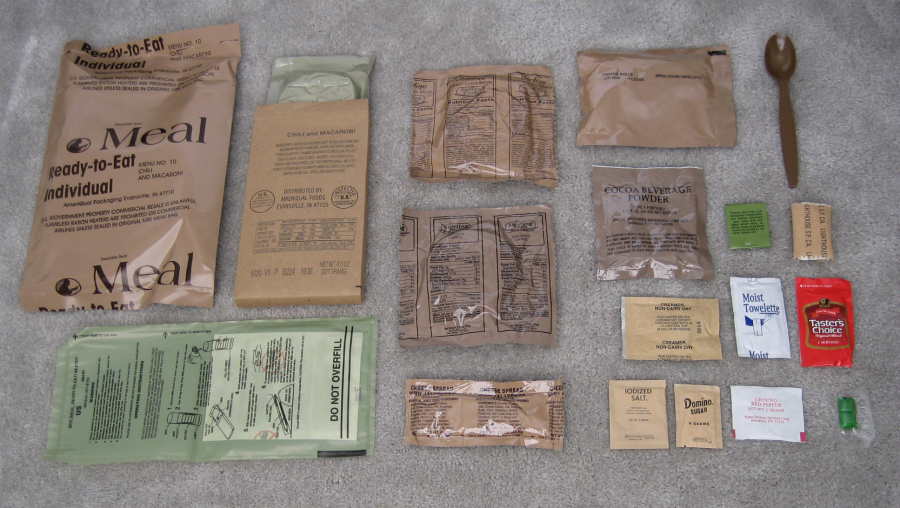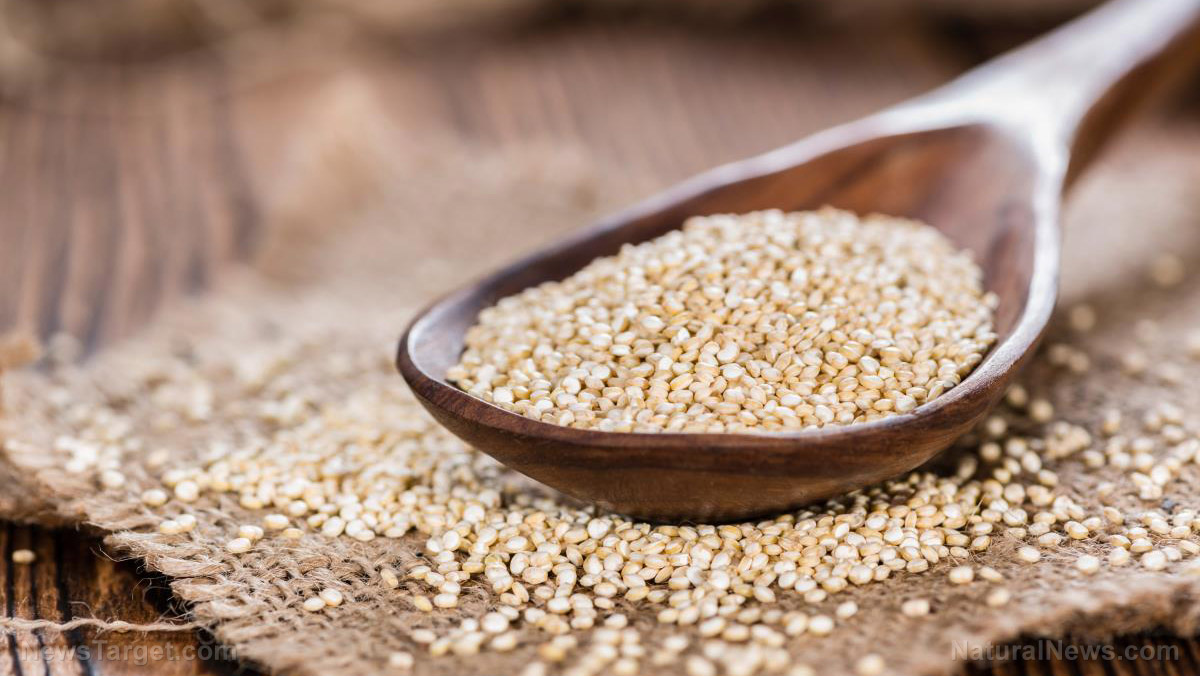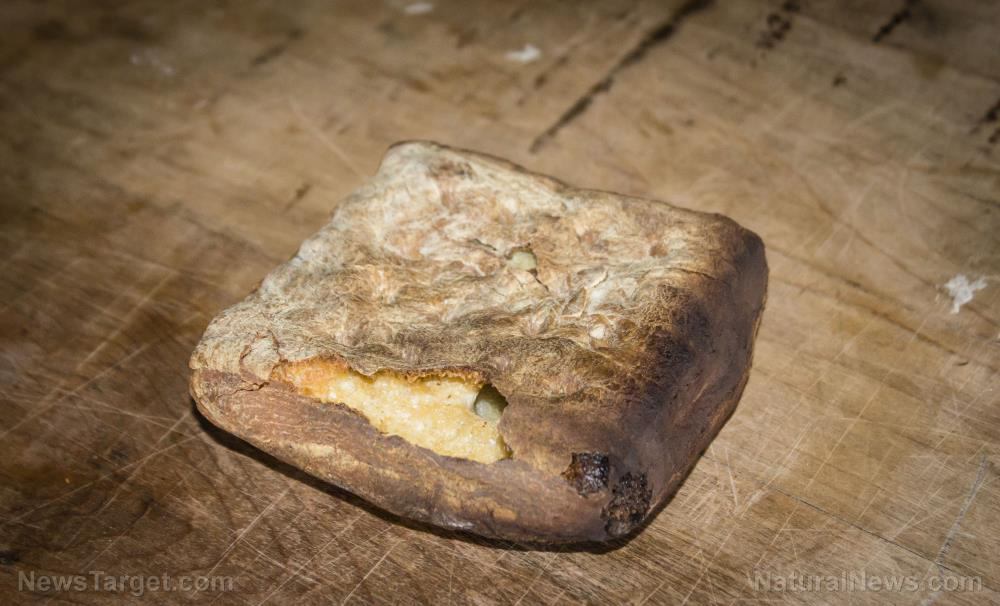Survival foraging: 5 Edible weeds to harvest when SHTF
07/05/2021 / By Zoey Sky

Preppers know that seemingly bothersome weeds are just as useful as other crops in their home gardens.
When SHTF, you can even forage wild edibles like clover and dandelion if you need more food for your stockpile. (h/t to SurvivalLife.com)
The weeds detailed in the list below can be found right in your yard, near your driveway, beside roads, or in the woods near your property.

Foraging tips for beginners
Before you start foraging, read up on common herbs and weeds to make sure you can properly identify wild edibles. Some of them may look like poisonous plants or those that are potentially dangerous to ingest.
Here are other tips that you can follow when foraging:
- Review helpful articles about foraging online or borrow field guides for plant identification. Look for reference books with detailed color photos and descriptions of identifying characteristics for weeds that are safe to eat.
- Avoid areas that may be polluted since ground contamination from pollution, pesticides or runoff can result in plants that are dangerous to consume. Choose locations at least 50 to 100 yards away from a busy road. You should also avoid places like areas around sidewalks, industrial sites and railroad tracks when foraging.
- If you’re foraging on private land, always ask for permission from the landowners. When harvesting weeds on public land, check if there are any restrictions or permits you may need. Contact the appropriate local, state or federal office if you are unsure about some restrictions on certain plants.
- Only take what you need. When SHTF, other preppers may also need to forage for food so don’t take too much. This also ensures that foraging areas remain healthy and abundant yearly. Harvest from healthy plants, but don’t take all of them. Leave some to reseed so the next generation grows from the healthiest plants. A general rule is to take five percent of a patch of any plant. The best time to forage for roots is in autumn after the plant has gone to seed. When harvesting flowers, leave some behind to go to seed.
You also need the right foraging equipment to protect yourself.
- Field guides – Bring along a physical book with detailed illustrations so you can easily identify weeds while foraging.
- Gloves – Sturdy gloves will protect your hands from thorns and other sharp objects.
- Breathable bags – Reuse clean brown paper bags to store harvested herbs. You can also use mesh bags to store herbs on the way home.
- Pruning shears or a knife
- Compact shovel – You’ll need a shovel to dig up roots. Get a foldable option for easy storage.
- Appropriate clothing – Wear a hat to protect yourself from the sun, good hiking boots and long sleeves to protect your arms from stinging nettles or thorny bushes.
Now that you know what you need to do, here are five weeds you should be on the lookout for.
1. Dandelion
Dandelions are edible and their leaves are full of vitamin A. Dandelion leaves can be cooked similarly to collard or mustard greens.
Dandelion roots look a little like carrots and you can low-temperature bake them to dry them. Dried dandelion root can be ground and percolated to make a beverage similar to coffee or tea. (Related: Forager favorites: How to make dandelion tea, salad and jelly.)

2. Red clover
You can probably find red clover in your backyard. Harvest red clover blooms at least one to two weeks after they bloom. If you want the blossoms to stay red, harvest them while they still have dew.
You can turn red clover into tea, a salve, a tincture or a poultice.
It can also be turned into flour. Use a hand mill to grind the dried flower heads and seeds to make flour.
If you plan on eating red clover flowers and leaves, boil them for around 10 minutes to make them easier to digest. The leaves and flowers are a good source of protein.
3. Thistle
Thistle is an edible weed eat that can be found where your yard meets a field or along nearby roadsides.
The new or young leaves can be eaten once the spines are removed. Use the leaves in salads or cook them similar to collard or mustard greens.
Thistle is a biennial plant and in its first year, it has no stem. In this first year of growth, thistle roots can be eaten either raw or cooked.
Early stems of the plant in its second year can be eaten raw or cooked after removing the outer skin.
Thistle roots can be eaten raw or cooked as a table vegetable. You can use thistle roots as an alternative to turnips. Additionally, thistle roots can be dried and ground into flour. The flour can be used as an extender in soups or stews.
Raw roots toasted in an oven at low heat will produce syrup. Thistle syrup has a slightly bitter taste and a caramelized color and you can use it as a sugar substitute.
Pickle peeled and boiled roots in brine or soak them in a cinnamon-flavored, cane sugar syrup to make a sweetmeat that can be served as a side dish.
4. Wild lettuce
Wild lettuce produces milky white sap when you break the plant’s stems. A tall leafy plant, wild lettuce leaves look similar to the leaves of dandelions.
Young wild lettuce leaves can be eaten, but you need to boil them for at least five minutes. Once done, drain and replace the water then boil the leaves again for another five minutes.
If the wild lettuce leaves are still too bitter after being boiled twice, add other salad greens to reduce the bitterness.
Wild lettuce leaves can also be used to make herbal tea. Note that wild lettuce leaf tea has a strong flavor and you may want to sweeten it naturally or dilute it with other juices to get rid of the “dirt and grass” flavor.
5. Wild onion
Wild onion leaves can be chopped and added to salads or cooked dishes. The onion bulb can be pulled or dug out of the ground and used like regular onions to season dishes.
The entire plant is edible raw or cooked. Use wild onions in salads or as a seasoning, green, soup base. You can also pickle wild onions using red bay leaves, peppergrass seeds and some vinegar.
When SHTF, forage for wild edibles like dandelion, thistle and wild onions if you need more supplies for your food stockpile.
Sources include:
Tagged Under: clover, common weeds, dandelions, disaster, emergency food, foraging, Herbs, off grid, preparedness, prepping, self-reliance, SHTF, survival, survival food, Survival Tips, thistle, wild lettuce, Wild Onion
RECENT NEWS & ARTICLES
EmergencyFood.News is a fact-based public education website published by Emergency Food News Features, LLC.
All content copyright © 2018 by Emergency Food News Features, LLC.
Contact Us with Tips or Corrections
All trademarks, registered trademarks and servicemarks mentioned on this site are the property of their respective owners.





















